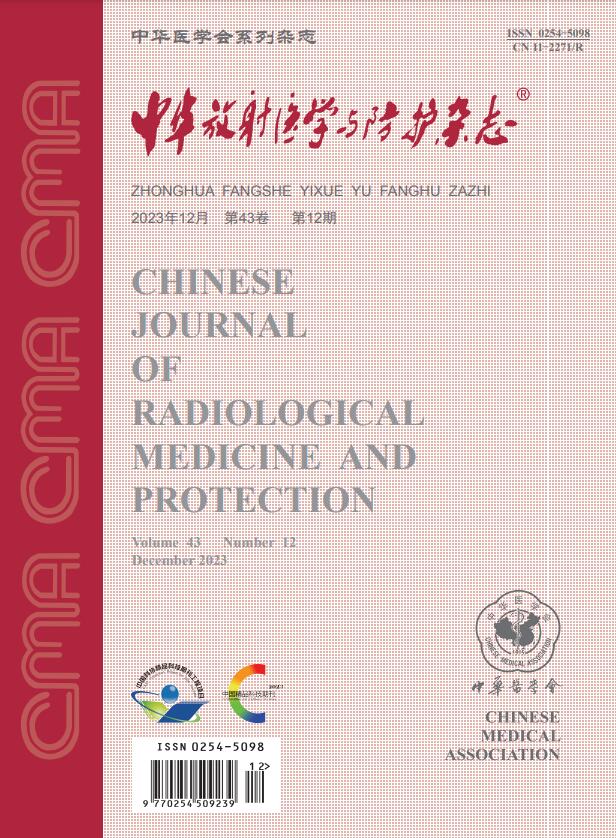Short-term efficacy and adverse events of intensity-modulated radiotherapy combined with chronomodulated chemotherapy for locally advanced nasopharyngeal carcinoma
Q4 Medicine
引用次数: 0
Abstract
Objective To compare the adverse events, immune status, and short-term efficacy between chronomodulated chemotherapy (CCR) and routine chemotherapy (RCR) combined with intensity modulated radiotherapy (IMRT)in the treatment of patients with locally advanced nasopharyngeal carcinoma. Methods A total of 159 patients with newly diagnosed locally advanced nasopharyngeal carcinoma were randomized into the CCR group and the RCR group to evaluate the short-term efficacy and adverse events. Results No significant difference was found in CR, PR, SD, and PD between the CCR group and the RCR group (P>0.05), and no significant difference was observed in the response rate (CR+ PR) between the two groups (P>0.05). The incidence of leukopenia(Z=-2.222, P<0.05), neutropenia(Z=-1.999, P<0.05), vomiting(Z=-2.298, P<0.05), and oral mucositis(Z=-3.571, P<0.05)of the CCR group was lower than those of the RCR group with statistical significance. The CD16+ 56+ lymphocyte cell count was higher in the CCR group than that in the RCR group(Z=-2.332, P<0.05). Conclusions As a novel invention, CCR combined with IMRT can reduce the incidence and severity of treatment-related adverse events and improve immune status without diminishing clinical efficacy, therefore deserving clinical application. Key words: Nasopharyngeal carcinoma; Chronomodulated chemotherapy; Intensity-modulated radiotherapy; Adverse events; Short-term efficacy调强放疗联合调时化疗治疗局部晚期鼻咽癌的近期疗效及不良事件分析
目的比较时间调节化疗(CCR)与常规化疗(RCR)联合调强放疗(IMRT)治疗局部晚期鼻咽癌患者的不良事件、免疫状况及近期疗效。方法将159例初诊局部晚期鼻咽癌患者随机分为CCR组和RCR组,评价其近期疗效和不良事件。结果CCR组与RCR组CR、PR、SD、PD比较差异无统计学意义(P>0.05),两组有效率(CR+ PR)比较差异无统计学意义(P>0.05)。CCR组白细胞减少(Z=-2.222, P<0.05)、中性粒细胞减少(Z=-1.999, P<0.05)、呕吐(Z=-2.298, P<0.05)、口腔黏膜炎(Z=-3.571, P<0.05)发生率低于RCR组,差异均有统计学意义。CCR组CD16+ 56+淋巴细胞计数高于RCR组(Z=-2.332, P<0.05)。结论CCR联合IMRT作为一项新发明,在不降低临床疗效的前提下,可降低治疗相关不良事件的发生率和严重程度,改善免疫状态,值得临床推广。关键词:鼻咽癌;Chronomodulated化疗;调强放射治疗;不良事件;短期疗效
本文章由计算机程序翻译,如有差异,请以英文原文为准。
求助全文
约1分钟内获得全文
求助全文
来源期刊

中华放射医学与防护杂志
Medicine-Radiology, Nuclear Medicine and Imaging
CiteScore
0.60
自引率
0.00%
发文量
6377
期刊介绍:
 求助内容:
求助内容: 应助结果提醒方式:
应助结果提醒方式:


